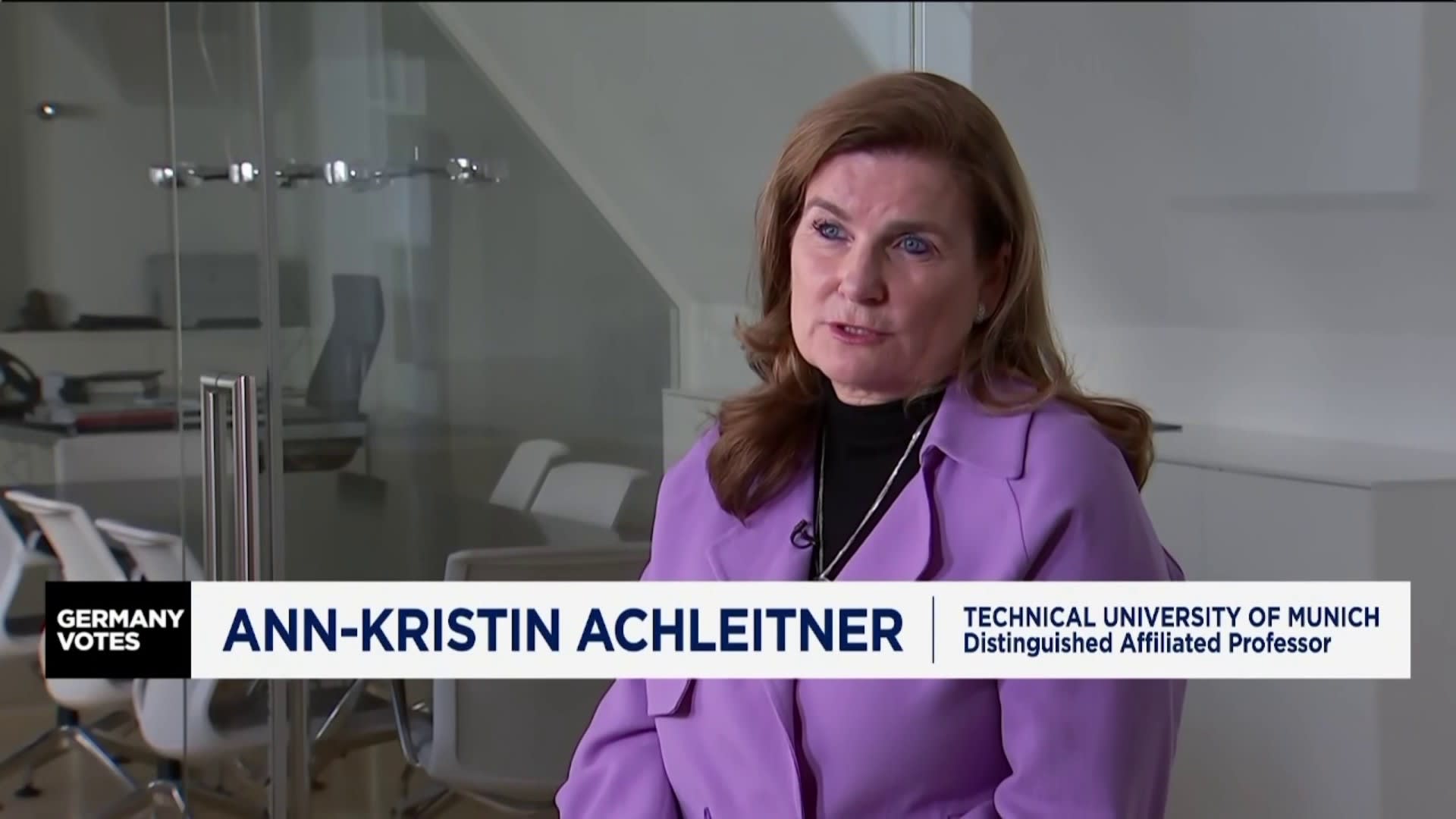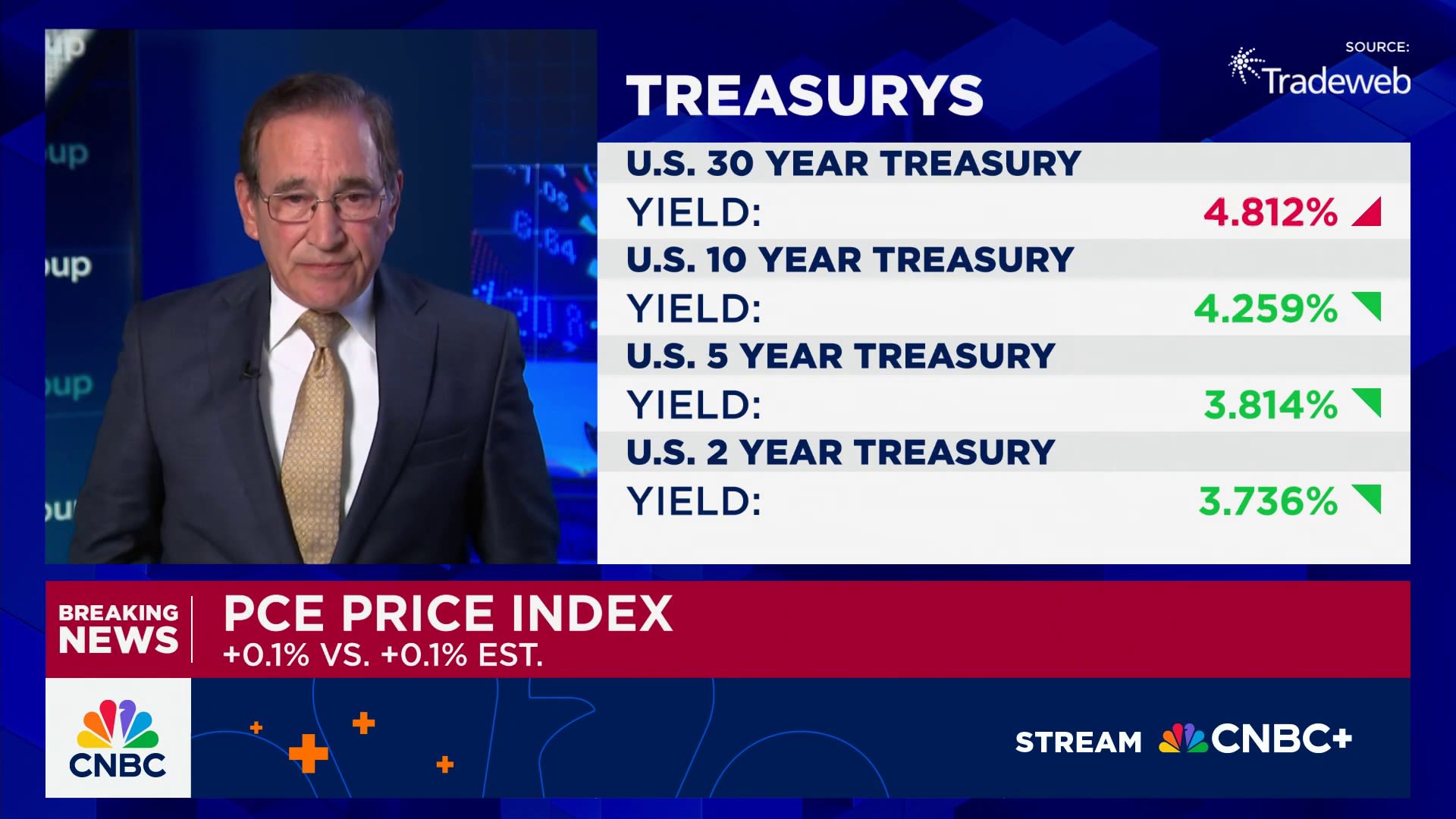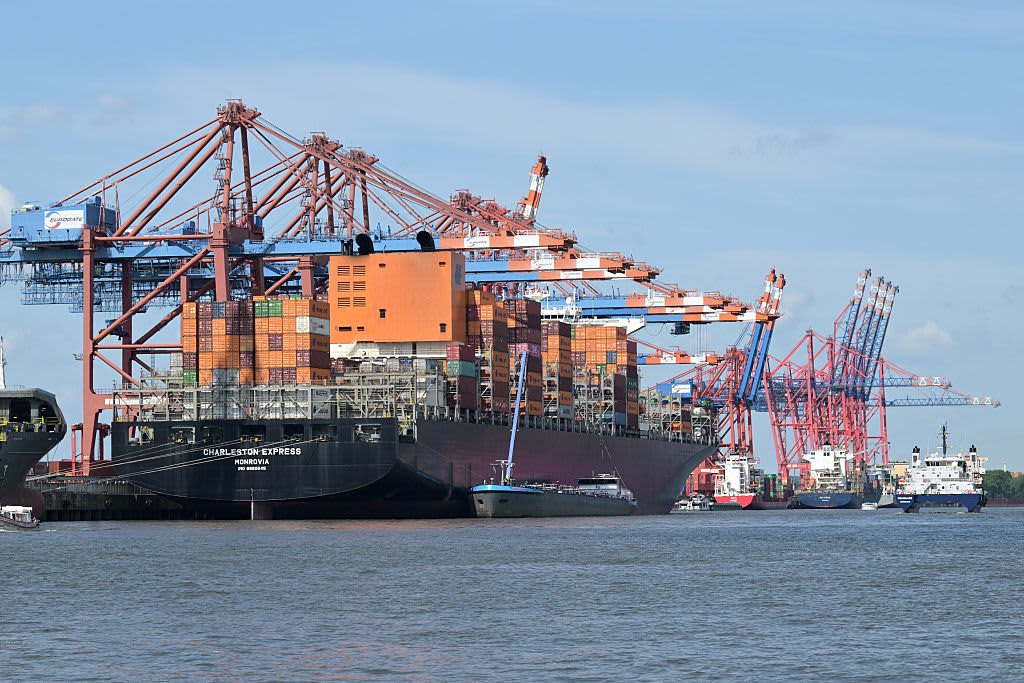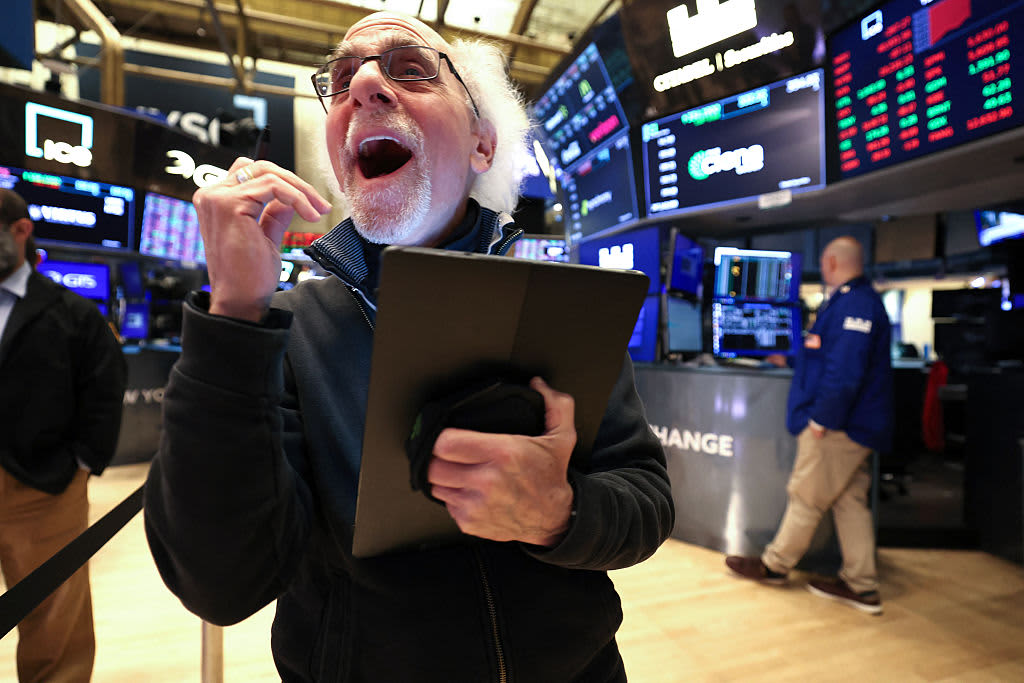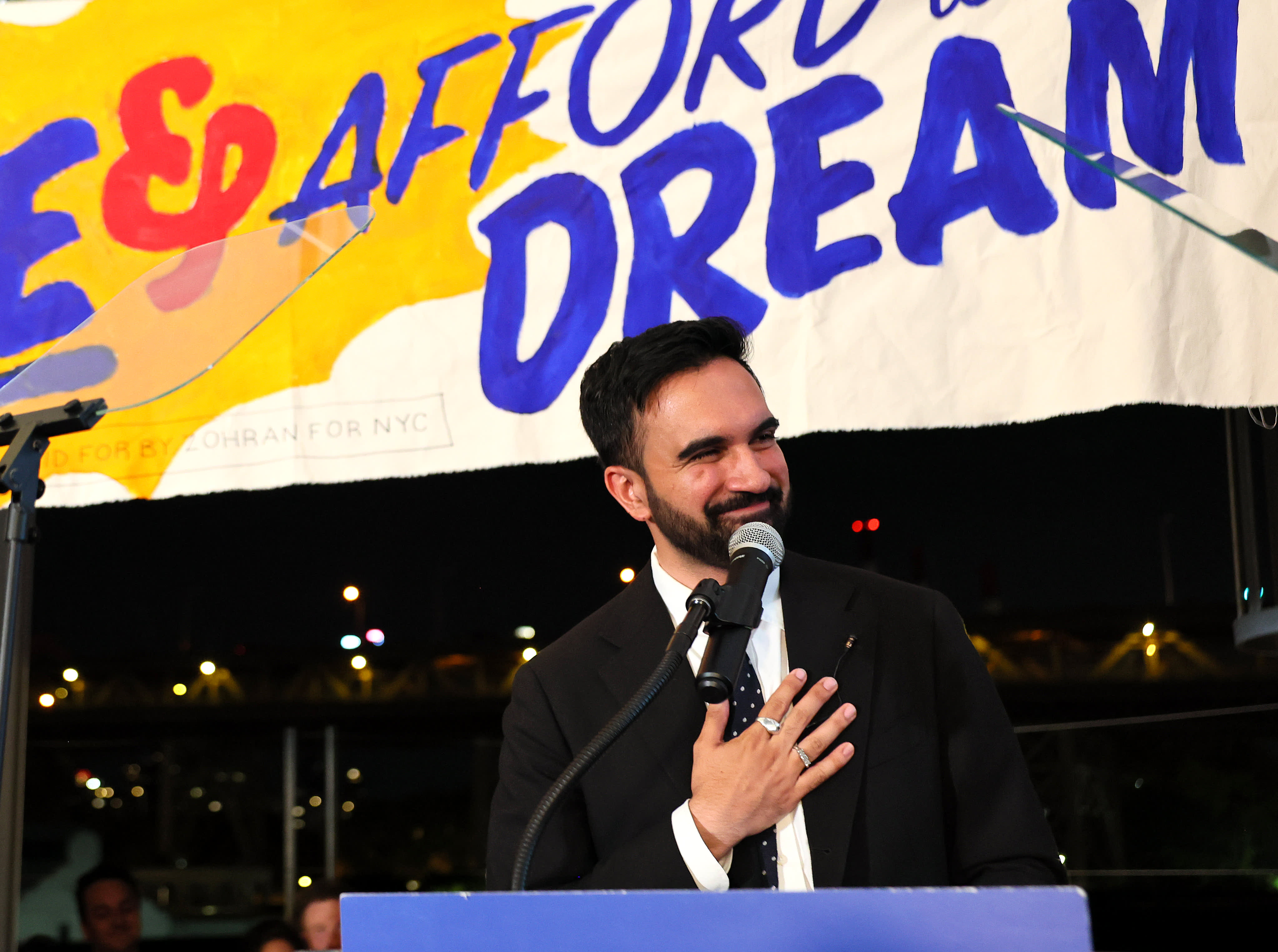Production at the VW plant in Emden.
Sina Schuldt | Picture Alliance | Getty Images
The struggling German economy has been a major talking point among critics of Chancellor Olaf Scholz’ government during the latest election campaign — but analysts warn a new leadership might not turn these tides.
As voters prepare to head to the polls, it is now all but certain that Germany will soon have a new chancellor. The Christian Democratic Union’s Friedrich Merz is the firm favorite.
Merz has not shied away from blasting Scholz’s economic policies and from linking them to the lackluster state of Europe’s largest economy. He argues that a government under his leadership would give the economy the boost it needs.
Experts speaking to CNBC were less sure.
“There is a high risk that Germany will get a refurbished economic model after the elections, but not a brand new model that makes the competition jealous,” Carsten Brzeski, global head of macro at ING, told CNBC.
The CDU/CSU economic agenda
The CDU, which on a federal level ties up with regional sister party the Christian Social Union, is running on a “typical economic conservative program,” Brzeski said.
It includes income and corporate tax cuts, fewer subsidies and less bureaucracy, changes to social benefits, deregulation, support for innovation, start-ups and artificial intelligence and boosting investment among other policies, according to CDU/CSU campaigners.
“The weak parts of the positions are that the CDU/CSU is not very precise on how it wants to increase investments in infrastructure, digitalization and education. The intention is there, but the details are not,” Brzeski said, noting that the union appears to be aiming to revive Germany’s economic model without fully overhauling it.
“It is still a reform program which pretends that change can happen without pain,” he said.
Geraldine Dany-Knedlik, head of forecasting at research institute DIW Berlin, noted that the CDU is also looking to reach gross domestic product growth of around 2% again through its fiscal and economic program called “Agenda 2030.”
But reaching such levels of economic expansion in Germany “seems unrealistic,” not just temporarily, but also in the long run, she told CNBC.
Germany’s GDP declined in both 2023 and 2024. Recent quarterly growth readings have also been teetering on the verge of a technical recession, which has so far been narrowly avoided. The German economy shrank by 0.2% in the fourth quarter, compared with the previous three-month stretch, according to the latest reading.
Europe’s largest economy faces pressure in key industries like the auto sector, issues with infrastructure like the country’s rail network and a housebuilding crisis.
Dany-Knedlik also flagged the so-called debt brake, a long-standing fiscal rule that is enshrined in Germany’s constitution, which limits the size of the structural budget deficit and how much debt the government can take on.
Whether or not the clause should be overhauled has been a big part of the fiscal debate ahead of the election. While the CDU ideally does not want to change the debt brake, Merz has said that he may be open to some reform.
“To increase growth prospects substantially without increasing debt also seems rather unlikely,” DIW’s Dany-Knedlik said, adding that, if public investments were to rise within the limits of the debt brake, significant tax increases would be unavoidable.
“Taking into account that a 2 Percent growth target is to be reached within a 4 year legislation period, the Agenda 2030 in combination with conservatives attitude towards the debt break to me reads more of a wish list than a straight forward economic growth program,” she said.
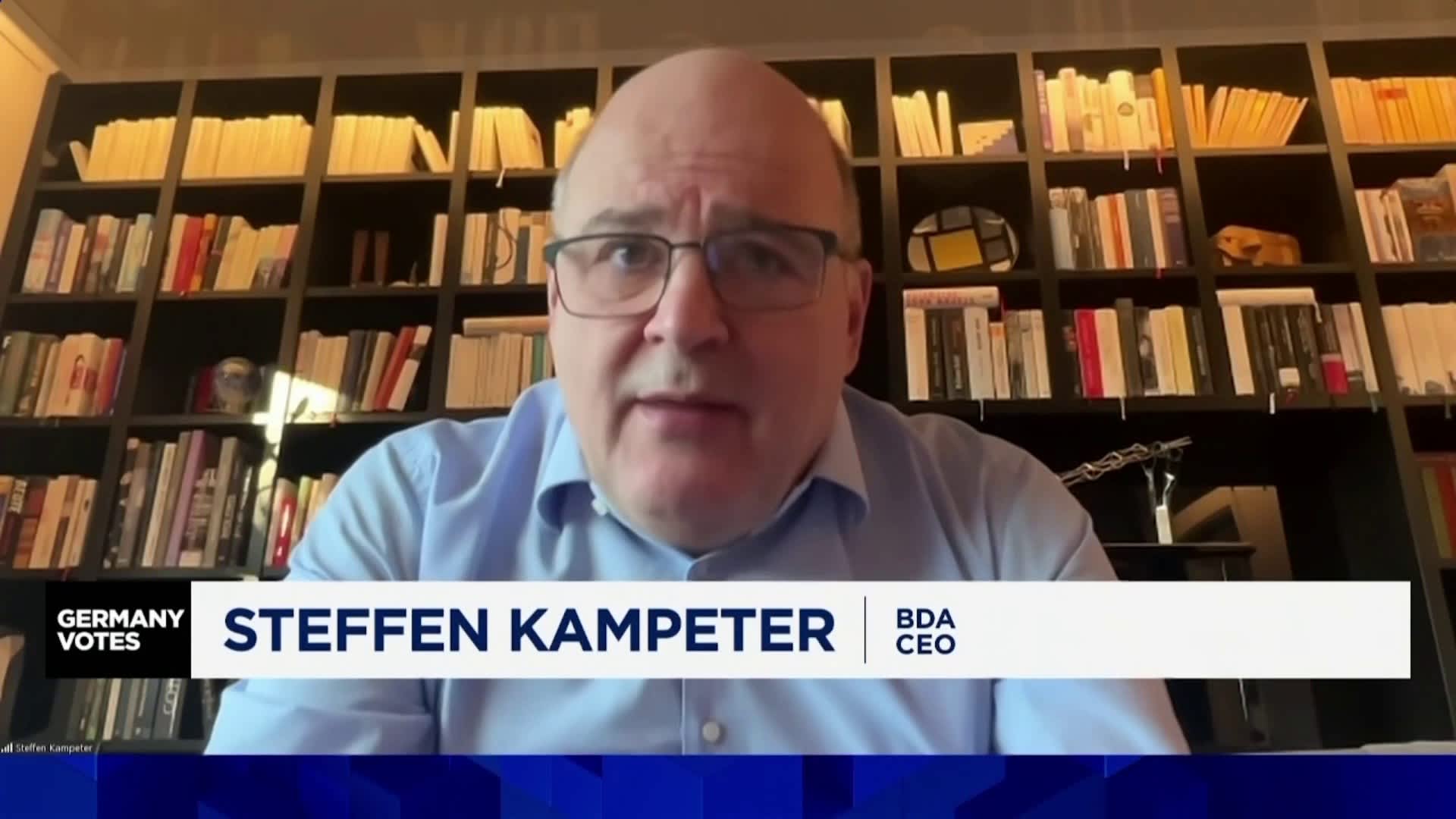
Franziska Palmas, senior Europe economist at Capital Economics, sees some benefits to the plans of the CDU-CSU union, saying they would likely “be positive” for the economy, but warning that the resulting boost would be small.
“Tax cuts would support consumer spending and private investment, but weak sentiment means consumers may save a significant share of their additional after-tax income and firms may be reluctant to invest,” she told CNBC.
Palmas nevertheless pointed out that not everyone would come away a winner from the new policies. Income tax cuts would benefit middle- and higher-income households more than those with a lower income, who would also be affected by potential reductions of social benefits.
Coalition talks ahead
Following the Sunday election, the CDU/CSU will almost certainly be left to find a coalition partner to form a majority government, with the Social Democratic Party or the Green party emerging as the likeliest candidates.
The parties will need to broker a coalition agreement outlining their joint goals, including on the economy — which could prove to be a difficult undertaking, Capital Economics’ Palmas said.
“The CDU and the SPD and Greens have significantly different economic policy positions,” she said, pointing to discrepancies over taxes and regulation. While the CDU/CSU want to reduce both items, the SPD and Greens seek to raise taxes and oppose deregulation in at least some areas, Palmas explained.
The group is nevertheless likely to hold the power in any potential negotiations as it will likely have their choice between partnering with the SPD or Greens.
“Accordingly, we suspect that the coalition agreement will include most of the CDU’s main economic proposals,” she said.
